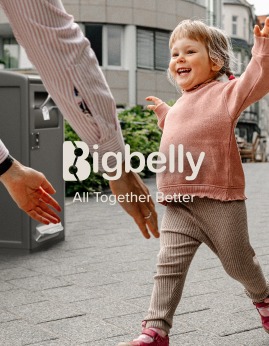Public space recycling involves the entire community and its success depends on attention, energy, and involvement of all participants – from organizers to city government and waste management departments to community members. Building strong partnerships takes time but it is an important component to the overall success of public space recycling programs and their future expansion, as well as producing efficient and effective solutions with long-term viability.
What to consider when designing and launching recycling programs
1. Strong stakeholder relationships
Made up of community and government representatives invested and involved in the success of the program over the long haul, a strong group of stakeholders is the foundation of an effective program. Creating this collaborative group early on allows for greater participation that fosters project buy in and solidifies a commitment to successful outcome. Collaboration eliminates the feeling that these new programs are imposed upon people and offers an opportunity for participants to play an important role in the creation of the project – it makes people more interested in doing the work and doing it well. This group is responsible for:
- Making decisions about the program’s logistics, budget and direction
- Envisioning the program’s design
- Introducing the program
- Ongoing program service and maintenance
- External communications
Under the pressure of deadlines and budget, it’s important to remain focused and remember to identify and bring together the right stakeholders. This is the team with whom you will communicate, work and negotiate with. This takes time but it is essential to establishing new public space recycling programs. Creating a working group offers many worthwhile benefits, such as:
- Broad representation of involved parties, and extends resources (press, community relations, boots on the street) for program development
- Cohesiveness over time as building recycling programs progresses
- Focus – with specific people responsible for specific elements of the program’s design and development
- A trusted environment in which all parties can formally communicate and participate in decision-making processes that yield benefits for the common good.
2. Conflict resolution – there will be challenges throughout the project development that need to be addressed, and compromises to negotiate. Keeping all partners focused on the common goal and dedicated to building collaboration will help navigate all the assumptions and competing needs. Knowing alignments and deviations in goals will help everyone gain a realistic understanding of how best to come to agreements. To help this process, all parties should consider addressing several questions early on:
- Why are we involved in this project?
- What do we expect to achieve?
- What can we give as part of this stakeholder group to reach our goals?
3. Community involvement – This can range from meetings, forums and focus groups to online surveys. Such involvement can help everyone understand the level of involvement and investment from who, and how best to engage invested community members in the process and to formulate communications plans.
- Engage the community – it takes time and requires managing negative and positive opinions
- Design a program with community input to ensure building a program that reflects community values
- Leverage the stakeholder network for extended education – learn who uses the various public spaces, when and how
- Know what motivates people to recycle, especially in relation to the different spaces, beyond preserving / protecting the environment. People may weigh the importance of health, happiness and livability differently; the recycling program should be designed to reflect these preferences
- Consider creating a public space recycling model that melds with the landscape and natural environment
- Create a green team or other working group that can help implement the public space recycling program. They typically consist of individuals who share a common interest or have expertise in environmental issues



